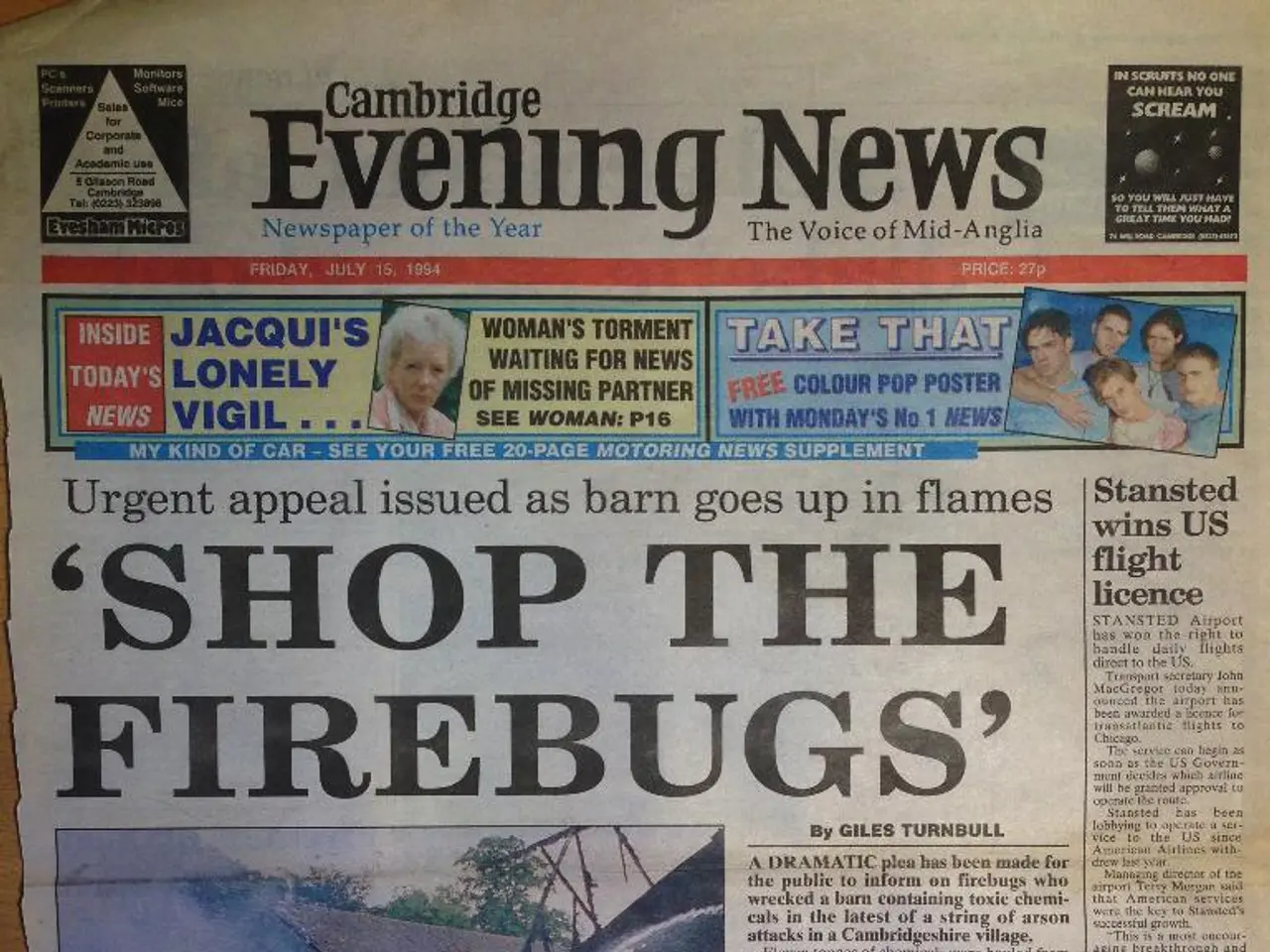Public funding for Native American radio stations could be jeopardized with the proposed $1 billion reduction in public broadcasting finances by Congress.
In a move that has sparked concern among Native American communities and leaders in the public broadcasting system, the Corporation for Public Broadcasting (CPB) faces a potential funding cut of over $1 billion. This proposed reduction in funding threatens to silence vital tribal radio stations that play a crucial role in providing news, local events, and critical weather alerts to isolated Native American communities across the United States.
The CPB is a significant source of support for these tribal stations, with 59 stations relying on this funding to operate. If the funding is cut, dozens of Native American radio stations could go off the air, leaving over 1.5 million people without reliable access to local news and information.
Many Native American communities rely on local radio stations as their primary source of news and information, particularly in remote or underserved areas where commercial media is limited or nonexistent. These stations act as vital communication hubs, maintaining cultural connections, promoting Indigenous voices, and preserving local languages and stories. The loss of these stations would create news deserts and contribute to the erasure of Native presence and visibility in public media.
The proposed cuts could also affect national content production, such as documentaries and cultural programming offered by groups like Vision Maker Media. Losing funding risks diminishing content that celebrates and educates about Indigenous histories and achievements, including productions like "Mankiller."
Leaders in the public broadcasting system warn that the failure of tribal stations will have a cascading effect on the entire network because fewer stations will remain to pay membership dues and sustain the broader system of public media.
Tribal representatives have expressed deep concern that the cuts echo past attempts at cultural erasure, drawing analogies to federal boarding schools where Indigenous children were forcibly assimilated and abused. Without funding, Native American voices become "invisible" in mainstream media, exacerbating marginalization.
The Senate is set to vote on the funding cuts this week, with some Republican senators under pressure from President Trump to pass the cuts. The proposed cuts could deprive communities of news in Indigenous languages, and as stations fail, others may follow, potentially causing the whole system to fracture.
Franz Joachim, New Mexico PBS general manager, predicts that some stations will go dark if funding is cut, reaching over 20 tribes and pueblos in the state. New Mexico PBS has an agreement with the Navajo Nation to carry their PBS signal and programming.
Blythe-Lewis, a tribal leader, compares the potential loss of tribal stations to past attempts to erase Native American cultures, such as federal boarding schools. The proposed cuts raise significant concerns about media representation, community resilience, and access to crucial information in Native territories.
- The impact of the proposed funding cuts to the Corporation for Public Broadcasting (CPB) could extend beyond tribal radio stations, potentially affecting personal-finance through diminished access to crucial information, vital for budgeting and financial management in Native American communities.
- In the realm of policy-and-legislation, the Senate's forthcoming vote on the funding cuts has sparked concerns about the implications for the representation and visibility of Native American voices in the general-news medium.
- The current political climate, with some Republican senators under pressure from President Trump to pass the funding cuts, raises questions about the broader implications for the finance industry, as the loss of tribal radio stations could have a lasting impact on the relationships between these communities and financial institutions that rely on local news for market insights.




